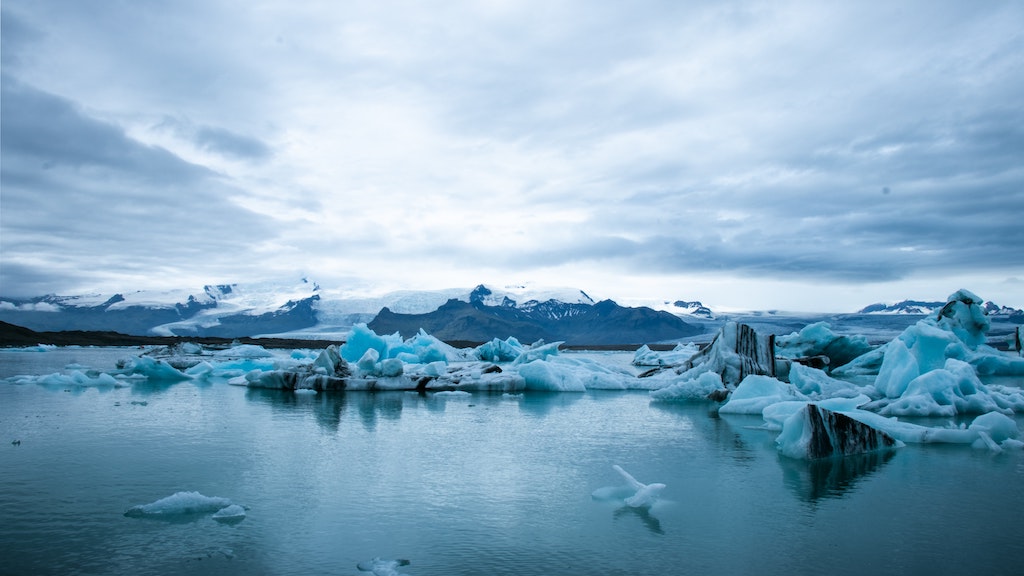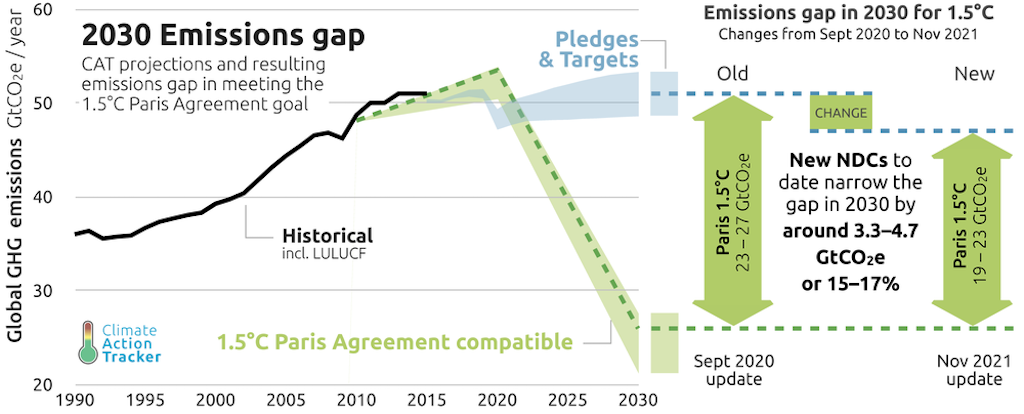3 Mins Read
The planet is still on track to see global temperatures rising by 2.4℃, despite the current pledges made at Cop26. The new analysis, which shows that the world will far exceed the 1.5℃ limit of the Paris agreement, criticises Glasgow for its “massive credibility, action and commitment gap”.
New data shows that the world is still headed for at least 2.4℃ of global heating, despite the promises that world leaders have made at Cop26 in Glasgow. The calculations have been made by the Climate Action Tracker (CAT), an independent research body led by Climate Analytics and the New Climate Institute.

2.4℃ rise or more
According to the CAT report, the planet is currently on track to see GHG emissions still twice as high as necessary in 2030 to meet the 1.5℃ limit outlined by the Paris accord, leading to at least 2.4℃ in 2100. It is calculated by factoring in all target pledges made so far, including new promises made during Cop26.
Over the past year, the stalled action from world governments has meant that the 2030 emissions gap has only narrowed by 15-17% so far.
CAT additionally warned that the projected warming could even reach 2.7℃ if measurements only include current policies—that means what countries are currently doing, rather than what they have proposed or pledged.
There has only been small signs of hope, primarily due to the inclusion of the US and China’s new net-zero targets being formalised in their NDCs. CAT’s calculation shows that the scenario temperature estimate of all NDCs and binding long-term targets has dropped by 0.3°C to 2.1°C after both countries’ pledges have been considered.

Cop26 has a ‘massive credibility, action and commitment gap’
Accompanying its annual update at Glasgow was a strong warning from CAT researchers of a “massive credibility, action and commitment gap” from the talks underway at Glasgow.
“The vast majority of 2030 actions and targets are inconsistent with net-zero goals: there’s a nearly one-degree gap between government current policies and their net-zero goals,” said Climate Analytics CEO Bill Hare.
“It’s all very well for leaders to claim they have a net zero target, but if they have no plans as to how to get there, and their 2030 targets are as low as so many of them are, then frankly, these net zero targets are just lip service to real climate action. Glasgow has a serious credibility gap.”
Despite over 140 nations having made net-zero pledges, CAT’s analysis shows that only a tiny portion of countries have “actual plans” to reach these targets. These countries, where plans are rated as “acceptable”, make up just 6% of the world’s emissions.

Fossil fuels must be eliminated
Researchers say that the biggest hurdle is phasing out coal and gas. Finding that the new methane and deforestation pledges made at Glasgow only narrow the emissions gap “slightly, if at all”, the scientists say that far more must be done to eliminate the fossil fuel industry.
“Coal must be out of the power sector by 2030 in the OECD, and globally by 2040, and in spite of political momentum and the clear benefits beyond climate change mitigation, there is still a huge amount of coal in the pipeline,” explained Hare.
By country, the largest coal producers such as China, Indonesia and Vietnam have a responsibility to shift away from coal—and CAT warns that replacements must come from renewable energy sources.
“We are seeing the rise of a gas industry pushing its product as an alternative, still supported by many governments. We cannot let fossil fuels be replaced with more fossil fuels,” said the report.
All images courtesy of Pexels, unless otherwise credited.




